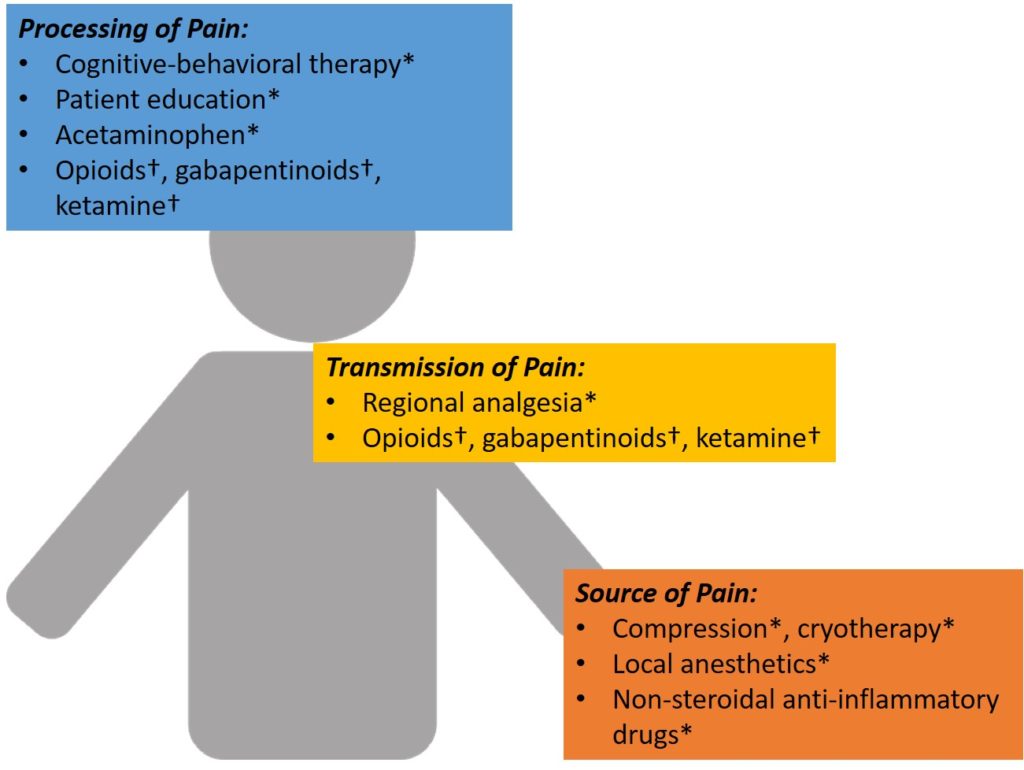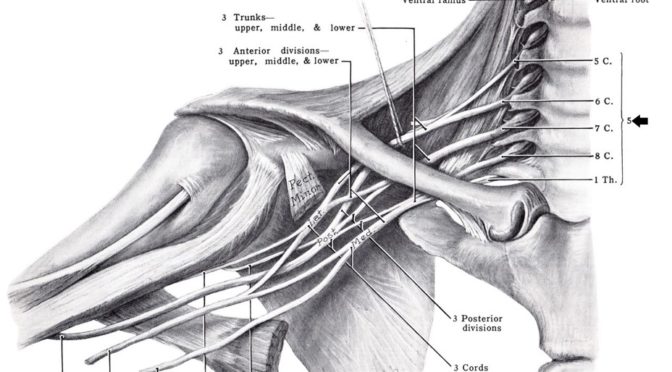The following is intended to provide helpful information and answers to frequently asked questions (FAQs) for patients who are scheduled for surgery and may be candidates for regional anesthesia. Regional anesthesia techniques work best in the context of multimodal analgesia.

Not all anesthesiology practices offer regional anesthesia services or perform ultrasound-guided regional anesthesia, and not all patients or surgical procedures are ideal candidates for regional anesthesia. If you have been on opioid (narcotic) pain medications for a long time or are treated for a chronic pain condition, a pain medicine specialist may be able to help get you ready for surgery. Please consult your anesthesiologist and surgeon to determine whether or not regional anesthesia is right for you. For more information about anesthetic options specifically for total knee replacement, please visit My Knee Guide.
To read about real patient experiences with regional anesthesia, see “Common Accidents Treated with Uncommon Approach” and “Surgery without Going Under.”
What is regional anesthesia?
“Regional anesthesia” is a targeted form of anesthesia and pain control. It involves injecting numbing medicine around nerves that provide sensation to specific regions or parts of your body (e.g., arm, leg, foot) and can be used instead of general anesthesia or in addition to general anesthesia as a way to help manage pain after surgery. Anesthesiologists can perform these procedures before surgery to prevent pain, or they can provide regional anesthesia as a “rescue” technique to relieve pain after surgery. Types of regional anesthesia procedures include spinal, epidural or peripheral nerve block.
How long does a nerve block last?
Depending on the type of numbing medicine (local anesthetic) used, a nerve block injection can last for a few hours or up to a whole day. For more painful surgeries, anesthesiologists can insert a tiny tube (also known as a “catheter”) that can continuously bathe the nerves in numbing medicine for an additional 2-3 days.
There are many advantages to regional anesthesia. Because you will have decreased sensation, you need to take less opioid (narcotic) pain medicines even though you may still have these medications prescribed to you. Patients who receive regional anesthesia also have less nausea, recover more quickly immediately after surgery, and sleep better overnight compared to patients who do not have regional anesthesia.
Does having regional anesthesia mean you have to be awake during surgery?
Even if you choose regional anesthesia instead of general anesthesia, you don’t have to be “awake” during surgery. Anesthesiologists often combine regional anesthesia with either intravenous sedation or general anesthesia, both of which can allow you to “sleep” during surgery. You should discuss your preferences with your anesthesiologist prior to surgery.
What can you expect on the day of surgery?
You will meet with an anesthesiologist who will evaluate whether or not regional anesthesia is the right option for you. If you are eligible and desire regional anesthesia for postoperative pain management, the anesthesiologist will typically perform your nerve block before your surgery. Nerve blocks may be performed in a specialized area (“block room”) outside of the operating room. After your IV is inserted, your anesthesiologist may provide you with sedating medication during the performance of your nerve block. Before the procedure starts, your anesthesiologist will perform a “time-out” for safety check with you to confirm the correct site and side of your surgical procedure. It is common for anesthesiologists to use ultrasound to safely inject numbing medication around the nerves. After the nerve block, your affected limb will “go to sleep” over the next 10-20 minutes.
Is it safe to get a nerve block?
There are always risks associated with performing any procedure. Fortunately, serious complications associated with regional anesthesia are exceedingly rare. Anesthesiology practices that specialize in regional anesthesia commonly have systems in place to prevent complications and treat them quickly if or when they occur. These procedures are performed in a sterile manner to minimize the risk of infection. Nerve injury is uncommon and may be associated with many other factors besides having regional anesthesia. Patients who receive a nerve block may experience mild bruising, bleeding, or soreness from the site of injection.
Other pain management considerations from the California Society of Anesthesiologists:
Further reading:
- Outpatient orthopedic shoulder surgery: Your pain relief options
- Special considerations for knee replacement patients
- Regional anesthesia for orthopedic surgery (Hospital for Special Surgery)
- Printable patient information handouts (Royal College of Anaesthetists)
- Safe opioid storage, tapering, and disposal
